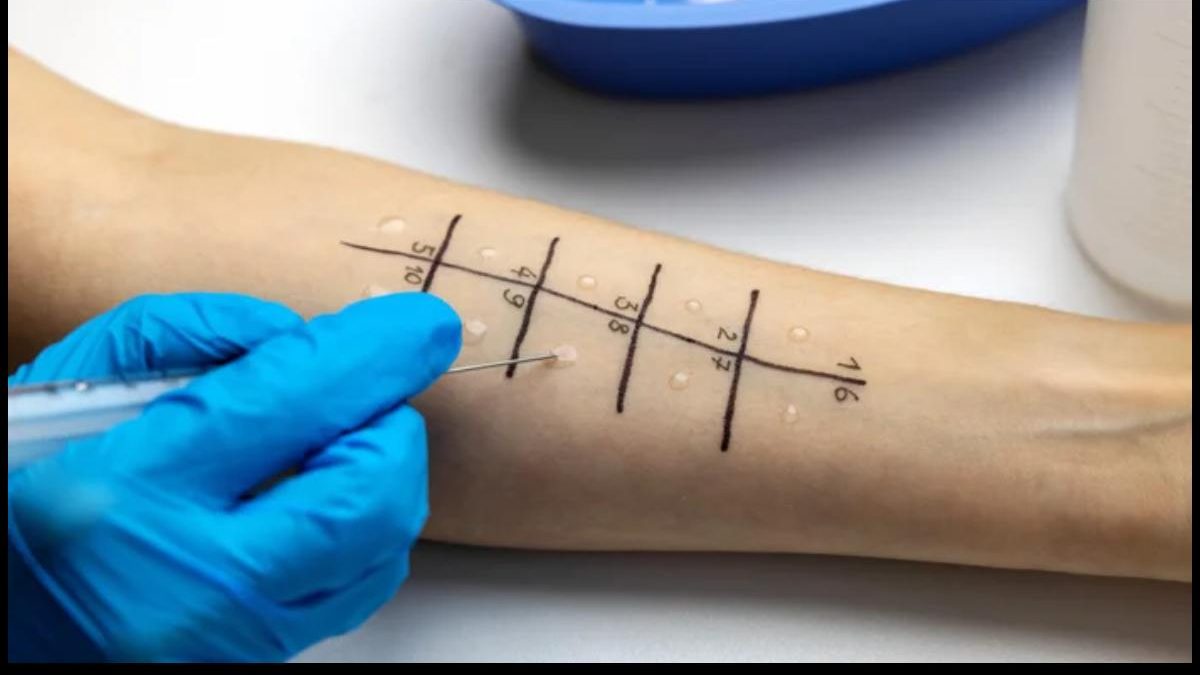What Are The Different Allergy Tests? – The allergic assessment identifies the allergen(s) responsible for an allergic reaction. It stands naturally done by skin testing. The doctors on Live explain how these different tests stand carried out.
Table of Contents
What Is An Allergy Test?
So an allergist performs an allergy test to check if your body is showing an allergic response to a specific known substance.
What Is An Allergy?
An allergy exists when the body’s immune system exhibits an unexpected and maladaptive reaction to something in the environment. Antibodies and type E immunoglobulins cause the majority of allergies. Therefore, it is essential to know what substances you are allergic to avoid them or prevent reactions.
Allergens are most often common substances, seeming relatively harmless, like pollen, which causes symptoms such as a runny nose, sneezing, itching, watery eyes or obstruction of the sinuses.
Allergy testing on the skin by analyzing blood. Elimination diet, or even a provocation test.
What Allergens Have You Tried?
The Main Allergens Tested Are:
- Acarids;
- Grass and herbaceous pollens tree pollens (birch, hazel, olive cypress, etc.);
- Dander (hair) of animals (cat, dog, horse);
- The melds;
- Cockroaches
- Food allergens;
- Other allergens whose role is optional by the life context and the questioning of the supposedly allergic person.
In children under three years old, in addition to the previous tests, peanuts, egg whites, fish and cow’s milk are tested.
What are the Different Possible Allergy Tests?
Skin Tests
Allergy skin tests are prevalent and identify several types of allergens: airborne, contact, and food. Before they consist of checking the changes and reactions of skin cells in connection with these substances.
There are three kinds of allergy skin tests, and the allergist is likely to perform all of them to get the correct insight into the body’s reactions to allergens.
Prick Test
The prick test is the reference test for inhalant allergens and food allergens. The test consists of using an allergen placed in a liquid and then spreading this liquid on the skin using a tool that pierces it slightly to allow the allergen to move through, t Followed by a monitoring period to see how the skin reacts. The final reading is done 10 to 20 minutes after application.
But an allergy stays branded if there is localized redness, swelling. Itching and elevation on the exposed part of the skin.
The Intradermal Reaction
Intradermal tests explore allergies to drugs and Hymenoptera stings (wasps, bees). The trial follows the same principle as a prick test, except that the liquid in which the allergen is present this time is injected directly into the dermal layer of the skin. It is followed by monitoring to check for the presence of a reaction.
Patch Test
Also called patch tests, they investigate skin allergies such as contact eczema. Patch tests take longer than a prick test or intradermal reaction since the results only read 2 to 4 days after the patches helpful in the skin.
Allergy Blood Tests
Blood tests require a blood sample when skin test results are inconclusive to identify the allergens triggering an allergic reaction. IgE assays (immunoglobulin E antibodies) specific to certain allergens approved.
The Eviction-Reintroduction Test
Because of this quiz is currently on the issue of supposed food hate. The suspect food removed from the food For weeks. The signs should then diminish or disappear. They reappeared when the food returned.
The Challenge Tests
The test agreed out under supervision in a hospital environment. It aims to reproduce the allergy symptoms after administering the suspected allergen orally for food and drug allergens by inhalation for inhaled allergens.
Where To Do An Allergy Check-Up?
So you can carry out a malariological assessment directly with an allergist, general practitioner, or specialist with an allergist qualification. In the context of a provocation test, the latter will only carry out in the hospital.
How Long Do The Tests Take?
Prick tests and intradermal tests can carry out during a consultation dedicated to them. Percutaneous tests require at least two talks, the first for applying the patches and the second for reading the results.
How To Prepare For Allergy Skin Tests?
The doctor will ask you about your family and medical history before performing the procedure. If you have one, he will ask you to stop taking your usual antihistamine treatment (aeries, kulaks, Zyrtec, virile, kestin, etc.). But it will also be necessary to eliminate all antihistamine drugs taken for other reasons:
- Local antihistamines (eye drops, nasal spray);
- Antihistamines used as anxiolytics (Atarax);
- Certain cold medicines and syrups;
- Specific drugs for the treatment of heartburn.
If in hesitation, do not hesitate to ask your pharmacist or your doctor for the composition of your treatments.
Risks of Allergy Testing
But allergy tests may cause itching, redness and mild swelling. They can also cause small bumps to appear on the skin. These symptoms can last from a few hours to a few days. Strong allergic reactions are rare but require immediate medical attention.
Are Allergy Tests Reimbursed?
A consultation with a specialist in the. Allergology sector 1. For those who do not practice, excess fees cost 30 euros. Malariological tests billed 28.80 euros. If the coordinated care pathway is respected (i.e. a doctor has referred you to the allergist), Social Security reimburses the consultation up to 70% of the convention rate. Mutual reimburse the rest to be paid and sometimes take charge of excess fees if there are any.
How To Read The Results Of An Allergy Test?
The results of your allergy. Assessment should take with your allergist doctor. So make an appointment with your doctor to interpret your results and tell you what to do if you have an allergy
READ MORE:-OGTT Test: How To Detect Gestational Diabetes?

